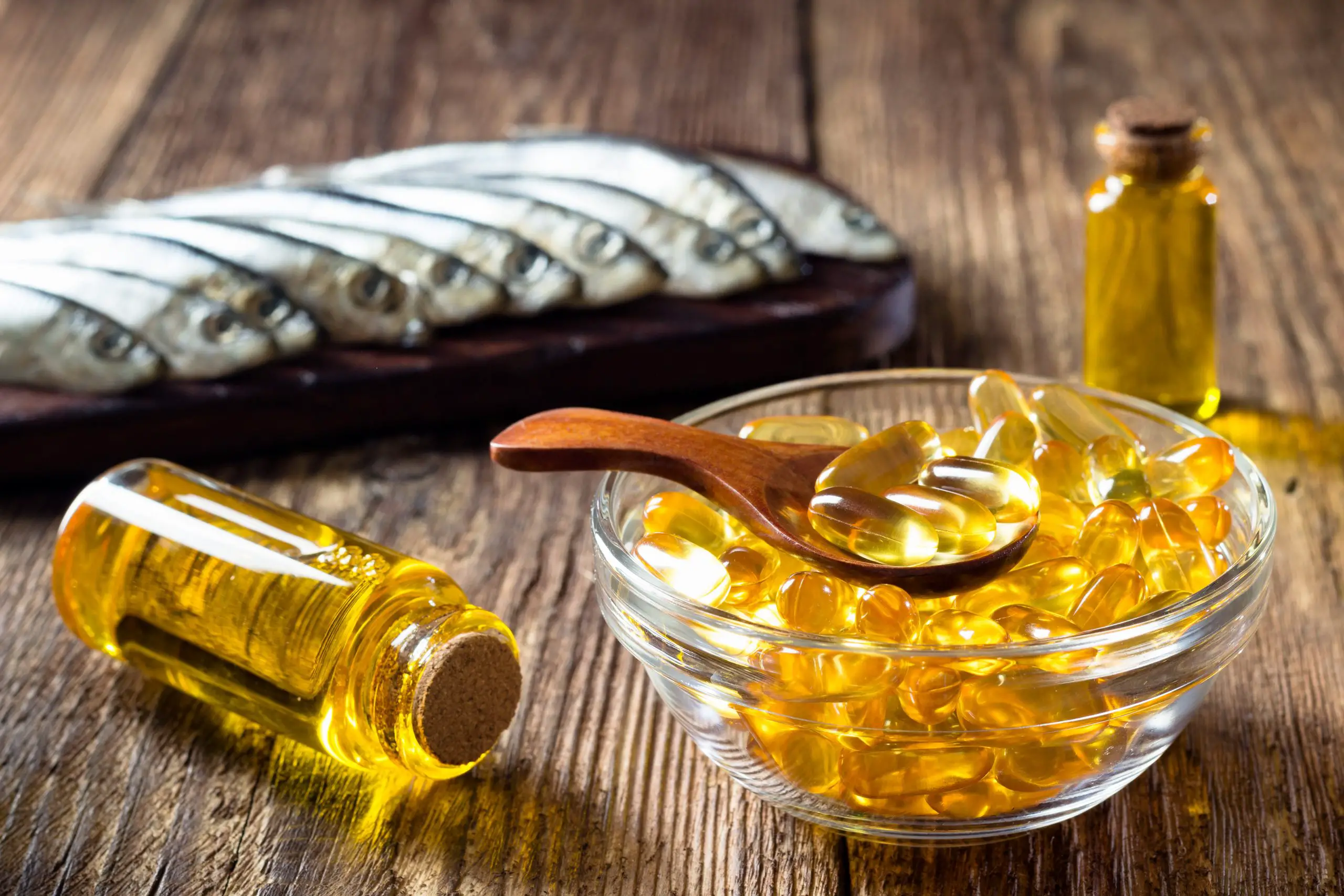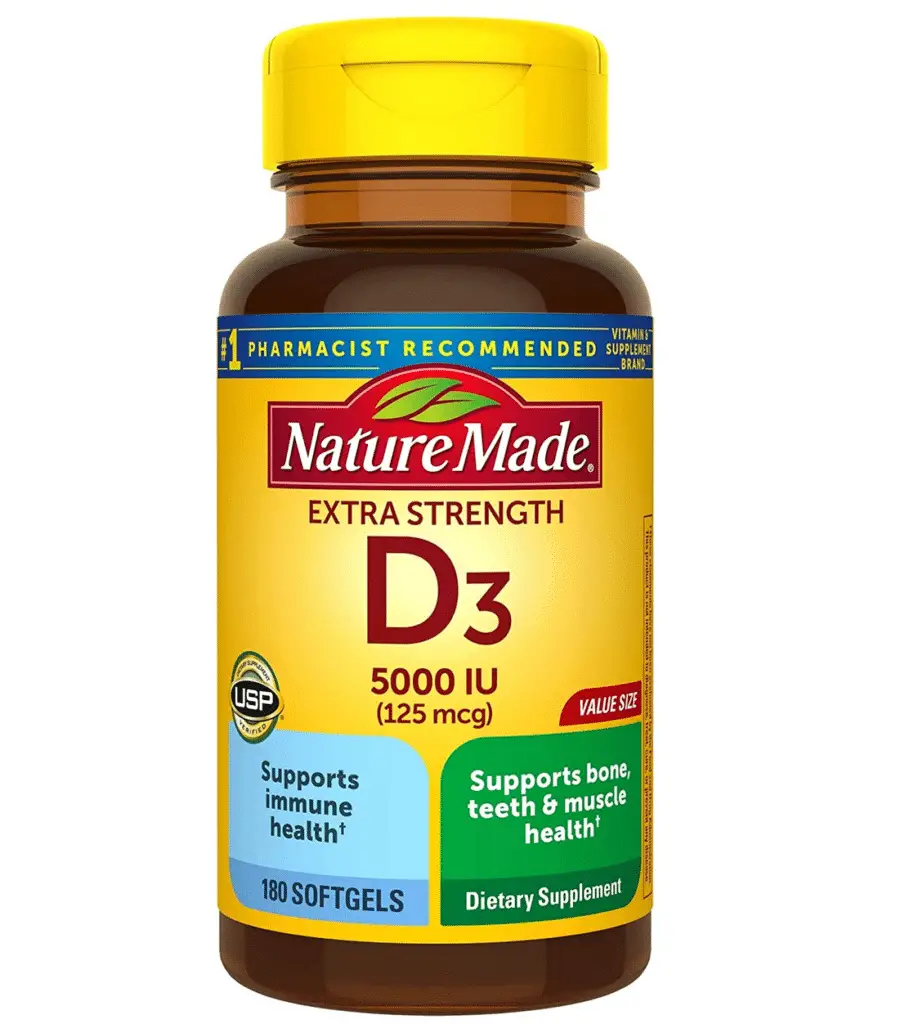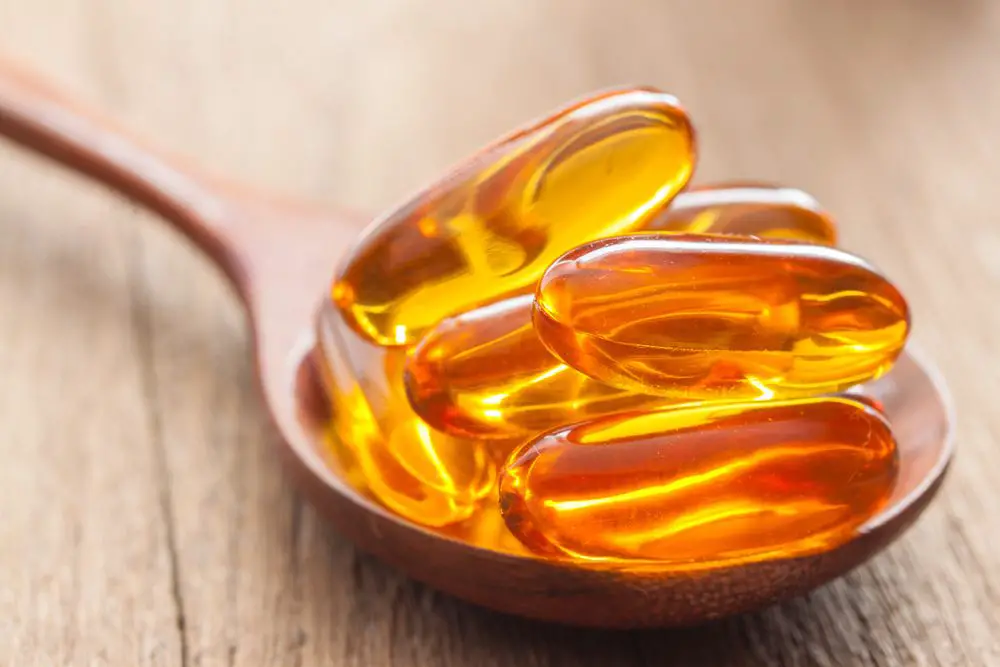Do I Need A Supplement
Anyone over the age of 1 needs 600 IU of vitamin D every day, and adults over 70 need 800 IU per day, according to the National Institutes of Health .
You only need about five minutes outside with your arms and legs exposed, twice a week, to get enough vitamin D, per the NIH, but that sun exposure is a double-edged sword: Too much can up your risk for developing skin cancer, according to the American Cancer Society.
If going out in the sun is a no-go and you find it challenging to fit in vitamin D-rich foods, then a supplement may be your best choice.
Keep in mind, though, that more is not always better. You’ll never get too much vitamin D from the sun because your body knows how to shut it off, but you can get too much from a supplement, which can lead to side effects like stomach upset. The NIH recommends keeping your daily dose below 4,000 IU. Since most supplements come in 1,000 or 2,000 IU, this shouldn’t be an issue.
Related Reading
Select Vitamin D3 Supplements Not Vitamin D2
There are two main forms of vitamin D in the diet the plant version, vitamin D2, and the animal version, vitamin D3.
Not surprisingly, given that we are not plants, the vitamin D3 version is better at maintaining our blood levels. A recent 12-week randomized controlled trial showed that vitamin D3 supplements were twice as effective as vitamin D2 in raising wintertime blood levels of vitamin D .
Vitamin D doses are sometimes expressed in International Units rather than micrograms. 1mcg vitamin D = 40 IU.
The upper tolerable level for long-term use from supplements is 100 mcg vitamin D3 per day. Doses above this level are best taken under medical supervision.
If in doubt about how much you need, a blood test can assess your current vitamin D status and pinpoint the right dose for you.
How Much Vitamin D Should I Get From The Sun
In addition to wondering how much vitamin D should I take, many people wonder how much vitamin D should I get from the sun.
Theres a reason that vitamin D is referred to as the sunshine vitamin. Sunlight exposure on our bare skin is the single best way to get enough vitamin D. Unfortunately most people today dont spend enough time in the sun, due to factors like working long hours inside, living in cold climates, being afraid of sunburns, etc.
In order to get enough vitamin D naturally from the sun its important to get outside and expose your skin to sunlight, without sunscreen. Aim to spend about 1020 minutes in the sun daily with as much of your bare skin exposed as you can, which will help your body produce vitamin D. You will absorb the most sunlight between about 11 a.m. and 3 p.m.
Melanin is a substance that affects how light or dark your skin color is. The amount of melanin you have in your skin also affects the amount of vitamin D you can produce, so the fairer your skin, the more easily you can make vitamin D. If you have dark skin, you will likely need more time in the sun, roughly 40 to 60 minutes daily, to make enough vitamin D.
Eating vitamin D-rich foods like eggs, raw milk and fish can also helps improve your blood levels of vitamin D.
You May Like: Why Is Vitamin D Important
Vitamin D Supplementation: An Update
Christine Gonzalez, PharmD, CHHCIntegrative Pharmacist and Health CoachUptown Drug and Gift ShopLos Angeles, California
US Pharm. 2010 35:58-76.
An estimated 1 billion people worldwide, across all ethnicities and age groups, have a vitamin D deficiency.1-3 This is mostly attributable to people getting less sun exposure because of climate, lifestyle, and concerns about skin cancer. The 1997 Dietary Reference Intake values for vitamin D, initially established to prevent rickets and osteomalacia, are considered too low by many experts.4 DRI values are 200 IU for infants, children, adults up to age 50 years, and pregnant and lactating women 400 IU for adults aged 50 to 70 years and 600 IU for adults older than 70 years. Current studies suggest that we may need more vitamin D than presently recommended to prevent chronic disease. Emerging research supports the possible role of vitamin D in protecting against cancer, heart disease, fractures and falls, autoimmune diseases, influenza, type 2 diabetes, and depression. Many health care providers have increased their recommendations for vitamin D supplementation to at least 1,000 IU.5 As a result, more patients are asking their pharmacists about supplementing with vitamin D.
Who Should Take Vitamin D

Some people may be at an increased risk of low or inadequate vitamin D levels. Older adults and people with darker skin may have trouble naturally producing enough vitamin D from sun exposure. People with health conditions such as Crohns disease, celiac disease or ulcerative colitis may have difficulty absorbing vitamin D. Individuals who have had gastric bypass surgery or who are obese may also require more vitamin D than others. Supplemental vitamin D may be a great option for these individuals as well as for anyone who is concerned about their daily vitamin D intake. People who do not consume dairy or animal products may also benefit from vitamin D supplementation. Your healthcare provider can help you determine if supplemental vitamin D is right for you.
You May Like: What Vitamins Should Women In Their 30s Take
A Rude Awakening From The Research
Here’s the deal, folks: Nationally representative data and robustly designed research on more than 26,000 adults in the U.S. show that 41% of Americans are vitamin D “insufficient” , while 29% are flat-out “deficient” .
Note: Optimal vitamin D status is 50 ng/ml plus
The numbers are pretty alarmingand what’s even more alarming is that they take into account all of the different ways we can get vitamin D, including foods and drinks , the sun, and supplements.
“This raises the question: How insufficient are most people’s vitamin D supplements? Very,” says mbg director of scientific affairs Ashley Jordan Ferira, Ph.D., RDN. “This national statistic suggests that many people aren’t supplementing and are instead relying on vitamin D-scant diets and unreliable sun exposure and that those who are taking supplements are consuming sub-efficacious supplement doses.”
Basically, the current state of vitamin D supplementation in the U.S. clearly isn’t doing enough to prevent these staggering rates of insufficiency and deficiency .
A few factors that might explain why taking supplements may not be enough to move the needle on our vitamin D status:
Bottom line: These statistics suggest that we can’t expect willy-nilly vitamin D supplementation to guarantee healthy levels and that many of us need to take a much more diligent, specific approach to boosting our intake of the sunshine vitamin.
Vitamin D Can Help Battle Depression
The sun can brighten up your mood, and so can vitamin D. According to a 2017 review article in the journal Neuropsychology, researchers found “a significant relationship between depression and vitamin D deficiency. While they acknowledged that more research is needed to define the exact workings of itsuch as, if low vitamin D levels are a cause or effect of depressionthe authors recommend screening for and treating vitamin D deficiency in subjects with depression noting that it is an easy, cost-effective and may improve depression outcome.
RELATED: More People Are Taking Vitamin D Than Ever. Here’s Why That Might Be Risky
Read Also: What Does Vitamin C Supplement Do
Quick Read You Probably Arent Getting The Vitamin D You Need
- In the Pacific Northwest, the sun isnt high enough in the sky in the fall and winter for the suns UVB rays to reach your skin and produce vitamin D.
- Research suggests that vitamin D deficiency may be linked to a number of serious health conditions.
- A combination of food and supplementation can help you get the vitamin D you need.
Vitamin D helps your body absorb calcium, helping you build strong bones and stave off osteoporosis. Its also important for your immune system and your muscles. Typically, the sun helps your body produce all the vitamin D you need, or at least close enough that you can get the rest through your diet.
But if you live in the Pacific Northwest, theres a good chance you arent getting enough of it in the fall and winter months, says Heather Tick, M.D., a family medicine doctor at University of Washington Medical Center-Roosevelt.
This is a problem, because vitamin D deficiency has been linked to a whole host of health issues from heart disease and depression to Parkinsons disease, multiple sclerosis, dementia and Alzheimers disease. And if youre diagnosed with breast cancer or prostate cancer, your chances of survival may be lower than someone with normal vitamin D levels.
So how can you tell if you need more vitamin Dand if you should stock up on supplements to make it through the next few months? Heres everything you need to know about the sunny day vitamin.
Q: Why Is Vitamin D Important
A: Research I have done in this area has found that people with low blood levels of vitamin D have a greater risk of a heart attack, heart failure, stroke, diabetes or high blood pressure later in life. In pregnant women, low vitamin D levels are linked to pre-eclampsia, gestational diabetes and adverse pregnancy outcomes. No matter your age or stage of life, having adequate vitamin D levels is important.
You May Like: How Does Vitamin C Help
Are Vitamin D Supplements Necessary
If you have a vitamin D deficiency, taking a supplement may be beneficial.
Many people are at a higher risk of deficiency, including older adults, those with darker skin, people with certain health conditions, and individuals who dont regularly get sun exposure .
If you suspect that you may have a vitamin D deficiency, its best to talk with your doctor to check your levels and determine whether a vitamin D supplement is necessary.
Sunlight And Vitamin D
Vitamin D is a unique vitamin. This is because your body can make it when it is exposed to sunlight.
Many factors can reduce how much vitamin D your body makes, including:
- smog
- amount of skin exposed to sunlight
- age:
- you make less vitamin D as you get older
These factors make it hard to estimate the amount of vitamin D you make from sun exposure.
You May Like: Can Vitamin B Help Depression
What To Know About Vitamin D Toxicity Or Overdosing On Vitamin D
When it comes to vitamin D, more isnt always better. Since the vitamin is fat soluble, its stored inside the body and can be harmful if your levels get too high. Too much vitamin D can cause vitamin D toxicity, or hypervitaminosis D, Clifford says.
You dont have to worry about overdosing if you rely on your diet and sunlight to reach 600 IU a day. Its once supplements get added that it becomes a concern. Its more common with mega doses of supplements taken over a long period of time usually doses above 10,000 IU per day, Clifford says.
What Is Vitamin D And How Does It Affect Health

Vitamin D appears to enable the body to absorb calcium and phosphate â both of which are important for bone health and for muscle function. The vitamin influences cell metabolism and growth, as well as overall immune system functioning. Vitamin D is also associated with a healthy gut microbiome.
The American Academy of Pediatrics recommends mothers who breastfeed their babies supplement their children with vitamin D, and that those who feed their babies infant formula also use formula that contains vitamin D. That is because too little vitamin D is associated with rickets, a condition that is characterized by soft or weak bones.
Beyond bone health, there is evidence that vitamin D plays a role in cancer, too. One study found vitamin D supplementation reduces cancer mortality by 25 percent. The idea is that vitamin D may influence tumor biology, making them less aggressive and less likely to proliferate.
Vitamin D deficiency can result from various problems, like inadequate Sun exposure, digestive problems, and kidney issues. Symptoms may include mood changes, bone loss, fatigue, and muscle, joint, and bone pain.
Don’t Miss: How Many Vitamin D Pills Per Day
What Is Vitamin D Deficiency
Vitamin D deficiency means that you do not have enough vitamin D in your body. Vitamin D is unique because your skin actually produces it by using sunlight. Fair-skinned individuals and those who are younger convert sunshine into vitamin D far better than those who are darker-skinned and over age 50.
Ritual Essential For Women 18+
Ritual is a vitamin subscription service that offers products with simple, traceable ingredients. This goes for its multivitamin for women ages 18 years and over.
This multivitamin contains 2,000 IU of vitamin D3 sourced from lichen. This is more than enough of the vitamin needed for this age group per day.
Ritual claims that all of its vitamins are Made Traceable and have a visible supply chain that users can map out online. The Essentials for Women 18+ multivitamin is vegan, gluten-free, allergen-free, and United States Pharmacopeia verified.
Don’t Miss: What Is Vitamin C With Bioflavonoids
Vitamin D Can Help Strengthen Muscles
Along with its bone-building abilities, vitamin D is also influential in strengthening muscles. Lack of vitamin D in the body can increase the risk of having weak muscles, which in turn increases the risk of falls, Lana Nasrallah, MPH, RD, clinical dietician at UNC Health, tells Health. This is especially important for the elderly. Vitamin D may help increase muscle strength thus preventing falls, which is a common problem that leads to substantial disability and death in older adults.
RELATED: How to Get Vitamin D, According to Doctors
Vitamin D And Your Body
There’s so much that vitamin D does for the body. It’s linked to improving mood, increasing energy and boosting the immune system.
A March 2014 review in the Journal of Pediatric Rehabilitation Medicine indicates that Vitamin D has been found to help with:
- Bone health
- Muscle weakness
- Pain
A review and meta-analysis published in 2015 in Obesity Reviews notes the link between obesity and vitamin D deficiency. Don’t go doubling your D intake just yet, though. Taking a dose of vitamin D at 50,000 IU for weight loss has yet to be proven effective.
You May Like: What Vitamins Should I Take For Immune System
Good Sources Of Vitamin D
From about late March/early April to the end of September, most people should be able to make all the vitamin D they need from sunlight.
The body creates vitamin D from direct sunlight on the skin when outdoors.
But between October and early March we do not make enough vitamin D from sunlight. Read more about vitamin D and sunlight.
Vitamin D is also found in a small number of foods.
- fortified foods such as some fat spreads and breakfast cereals
Another source of vitamin D is dietary supplements.
In the UK, cows’ milk is generally not a good source of vitamin D because it is not fortified, as it is in some other countries.
Vitamin D Can Help Treat Hypertension
According to a 2019 review published in the journal Current Protein & Peptide Science suggests that vitamin D may play a role in treatment of high blood pressureone of the markers of cardiovascular diseasesays Newgent. According to authors of the review, even short-term vitamin D deficiency may directly raise BP and promote target organ damage. The researchers went on to add that, “due to the high correlation between vitamin D and hypertension, vitamin D supplementation therapy may be a new insight in the treatment of hypertension.”
RELATED: Is Too Much Vitamin D Bad for You? We Asked Nutritionists for the Facts
Read Also: Is 1000mg Of Vitamin C Too Much
Review: Vitamin D3 Oral Sprays
Oral sprays are another popular way to obtain vitamin D3. A quick squirt inside the cheek, or under your tongue, allows the vitamin to rapidly cross the lining of your mouth for direct absorption into the blood stream. You can also adjust the dose based on the number of squirts you use.
BetterYou DLUX 3000 Daily Vitamin D Oral Spray provides vitamin D3 sourced from lanolin and is suitable for vegetarians. It has a natural peppermint flavour and provides 3000 IU vitamin D3 per squirt. A BetterYou DLUX spray that supplies 1000 IU per dose is also available.
Dr Mercola Sunshine Mist Vitamin D This spray provides 1000 IU vitamin D3 per metered dose. It is available in natural orange flavour, is sweetened with stevia extract, and has no artificial flavors, colors or preservatives.
Vitamin D3 supplements are also available from Boots.com and from healthspan.co.uk.
Image credits: pixabay
How Is Vitamin D Deficiency Treated

The goals of treatment and prevention are the sameto reach, and then maintain, an adequate level of vitamin D in the body. While you might consider eating more foods that contain vitamin D and getting a little bit of sunlight, you will likely be told to take vitamin D supplements.
Vitamin D comes in two forms: D2 and D3. D2, also called ergocalciferol, comes from plants. D3, also called cholecalciferol, comes from animals. You need a prescription to get D2. D3, however, is available over the counter. It is more easily absorbed than D2 and lasts longer in the body dose-for-dose. Work with your doctor to find out if you need to take a vitamin supplement and how much to take if it is needed.
Read Also: What Vitamins Improve Egg Quality